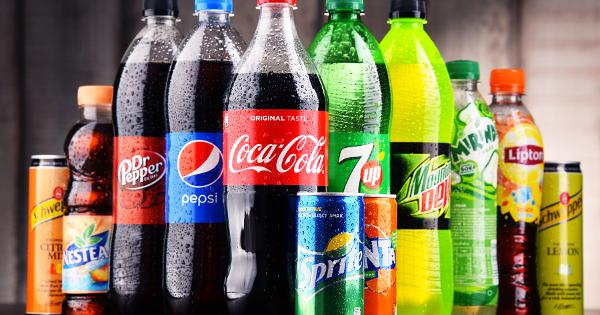Latest News
How safe is carbonated Drink
The Side effect of taking carbonated drinks cannot regularly cannot be overstated from Increased Risk of Obesity and Weight Gain, to tooth decay, Poor Nutrition and many more.

According to Statista.com, Nigerians spent a whopping $29,885 million dollars (12,297,677,500.00) on carbonated drinks in the first half of 2021.
By my guess, every three in five Nigerians is addicted to carbonated drinks, which begs the question, how safe is these carbonated drinks.
Side effects of Consuming Carbonated Drink
Although the ingredients in carbonated drinks are deemed safe by the National Food and Drug Administration (NAFDAC), these beverages however have their own side effects, especially if they are consumed on a regular basis.
#1. Increased Risk of Obesity and Weight Gain
According to an article, published in the “American Journal of Public Health,” by Lenny Vartanian, Ph.D., Consuming sugar-sweetened, carbonated drinks add calories to your diet, which may increase the risk of being overweight and obese.
The report stated that the risk of overweight and obesity is associated with consumption of sugar-sweetened, carbonated beverages is greater for women than men and for adults compared to children and adolescents.
#2. Tooth Decay
Regular consumption of carbonated soft drinks can harm one’s teeth. aesthetically it could turn white teeth to yellow which could eventually result in more serious health complications. Also, the acid in these carbonated drinks further increases the likelihood of developing cavities, because these chemicals also slowly erode the enamel of one’s teeth, promoting the processes that lead to tooth decay.
#3. Belching and Heartburn
Carbonated beverages contain dissolved carbon dioxide, which becomes a gas when it warms to body temperature in your stomach. Consuming carbonated soft drinks may cause repeated belching as your stomach stretches from the accumulation of carbon dioxide gas. Food and stomach acid may come up your food pipe as you belch, causing heartburn and a sour taste in your mouth.
#4. Poor Nutrition
Consumption of carbonated soft drinks can adversely affect your overall nutrient intake. Drinking these beverages may reduce your consumption of proteins, starch, dietary fiber, and vitamin B-2, also known as riboflavin. People who drink carbonated beverages also tend to eat less fruit and drink less fruit juice compared to those who do not drink sodas.
#5. Reduced Bone Strength
According to an article published in “The American Journal of Clinical Nutrition,” by the nutrition scientist Katherine Tucker, Ph.D., women who consume regular and diet cola tend to have weaker hipbones compared to those who do not drink these beverages. She also noted that the degree of bone weakness correlates to the amount of cola consumed.
How to stop Carbonated drinks addiction
There are two major ways to stop carbonated drinks addictions.
#1. Quit cold turkey
This method requires quitting carbonated Drinks all at once It may result in withdrawal symptoms, but it may also help the body recover faster than simply tapering down.
#2. Taper down your intake until drinking none
This method requires decreasing carbonated drink intake slowly and methodically until the victim is able to quit completely, it takes longer but it helps avoid withdrawal symptoms.
